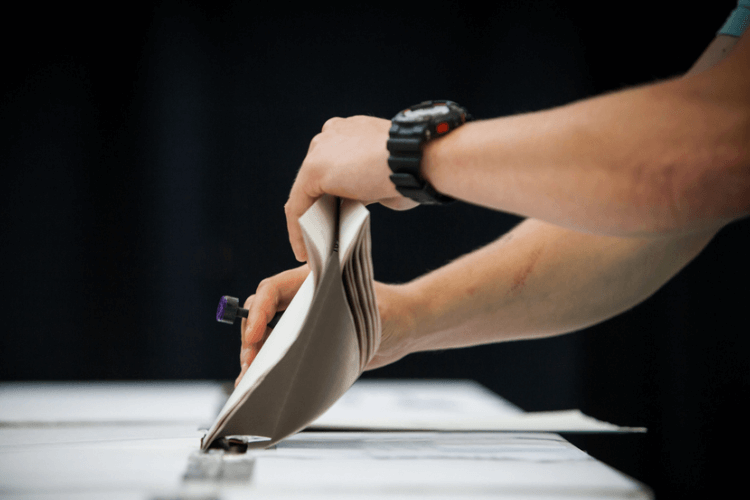Political blockchain: a new way to vote

The governments of the world might consider using blockchain for secure vote procedure after reports of hackers trying to influence the elections in the United States. This is one of the reasons why American-based startups seem to be in the majority of such projects.
For instance, Voatz has managed to agree to cooperate with a company that establishes voting systems in America. The CEO of Voatz believes that blockchain (his version largely resembles the Bitcoin blockchain) can become useful for voting once the number of validating peers is reduced to the group government has verified and trusts enough. However, they have another approach in store: if the government decides to focus more on paper ballots in the future, they are going to develop a blockchain-based add-on to the existing ballot verification systems.
Other notable examples of blockchain voting projects are Follow My Vote, a company in Virginia, Blockchain Technologies Corp. in New York, and the experimental vote that happened in Utah in 2016, when the Republicans decided to test a new concept (the result was a partial success). Another interesting project is the Sovereign app tested in Colombia. Reports claim that the DLT voting not only matched the official referendum on the same topic, but also helped to find out what exactly the opponents of the new governmental measure didn’t like.